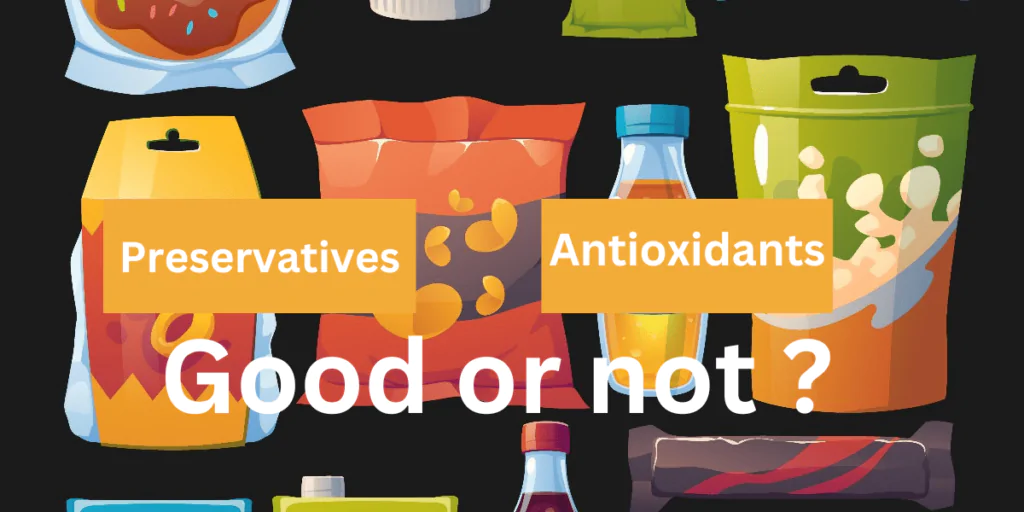In today’s health-conscious society, the conversation around food additives, particularly preservatives and antioxidants, often takes center stage, fueled by a myriad of scaremongering videos on social media. These videos, which frequently go viral, typically assert that food companies are endangering public health by incorporating harmful chemicals into their products. However, a closer examination of the science behind food additives reveals a different story, one rooted in necessity, safety, and scientific evidence. This post aims to dissect the misconceptions and provide a factual perspective on the use and safety of food additives.
The Essential Role of Food Additives
Combatting Food Spoilage: Given enough time, all food spoils, a process accelerated by microbes that can render food unsafe. Historically, methods like salting, acidifying, or dehydrating food were used to inhibit microbial growth. Today, preservatives play a crucial role in extending the shelf life of food, ensuring it remains safe and edible for longer periods.
Preservatives and Antioxidants Explained: There are 12 categories of food additives, with preservatives and antioxidants among the most vital. Preservatives prevent food spoilage caused by bacteria and fungi, while antioxidants slow down oxidation—a process where oxygen in the air can degrade the quality of food.
Understanding Food Additive Nomenclature
Standardized Naming Systems: The scaremongering claim that companies deliberately obfuscate the names of chemicals in their products is unfounded. The use of codes, such as E300 for ascorbic acid, ensures consistency and clarity across different languages and regions, enabling consumers to precisely identify additives.
Natural vs. Synthetic Preservatives: Preservatives are classified into two categories: Class 1, comprising natural substances like salt and vinegar, and Class 2, which includes synthetic or nature-identical substances. Both categories are rigorously tested for safety and efficacy.
Debunking Common Myths about Food Additives
Safety and Allergies: Contrary to popular belief, preservatives are generally recognized as safe, with extensive historical use and scientific research supporting their safety at scale. While allergies to certain additives exist, they are exceedingly rare and typically less common than allergies to foods like peanuts.
The Misleading Nature of Bans: The narrative that the European Union’s bans on certain additives signify inherent danger is misleading. Different regions may adopt different regulatory approaches based on risk or danger, but this does not inherently make one region’s food safer than another’s.
Conclusion
The discourse around food additives is fraught with misinformation and fear mongering. However, when scrutinized through the lens of science, the use of these additives is not only justified but essential for maintaining the safety, quality, and longevity of our food supply. Consumers should feel reassured that food additives, including preservatives and antioxidants, undergo rigorous testing and regulatory scrutiny to ensure their safety. Ultimately, a balanced and informed perspective, coupled with trust in local food safety experts, is key to navigating the complex landscape of food additives.
Frequently Asked Questions (FAQs)
1.What are food additives?
Food additives are substances added to food to preserve flavor or enhance its taste, appearance, or other qualities.
2.Are food preservatives safe?
Yes, food preservatives are safe. They undergo rigorous testing and regulatory scrutiny to ensure their safety for consumption.
3.What is the difference between natural and synthetic preservatives?
Natural preservatives come from natural sources and include salt, sugar, vinegar, etc. Synthetic preservatives are man-made and designed to mimic or enhance the preserving qualities of natural substances.
4.Why are food additives necessary?
Food additives prevent spoilage, extend shelf life, and maintain food quality by inhibiting the growth of harmful bacteria and fungi, and by slowing down oxidation.
5.How are food additives regulated?
Food additives are regulated by food safety authorities, which evaluate their safety, effectiveness, and ensure they are used within safe limits.
6.Can people be allergic to food additives?
While rare, allergies to certain food additives can occur. However, these allergies are less common than allergies to foods like peanuts.
7.Why do some countries ban certain food additives while others do not?
Differences in regulatory approaches, such as risk-based versus danger-based assessments, can lead to variations in which additives are permitted in different countries.
8.How can I find out what additives are in my food?
Food additives are listed on the product’s ingredient label, often with their specific names or as codes (e.g., E300 for ascorbic acid).
9.Are preservatives in food bad for you?
No, when used within regulatory limits, preservatives are not bad for you. They play a crucial role in maintaining food safety and quality.
10.How can I reduce my intake of food additives if I choose to?
To reduce your intake of food additives, you can opt for fresh, whole foods, read labels carefully, and choose products with fewer or no added preservatives.
Read more : Antioxidants versus Food Antioxidant Additives and Food Preservatives
Image credit: Freepik

